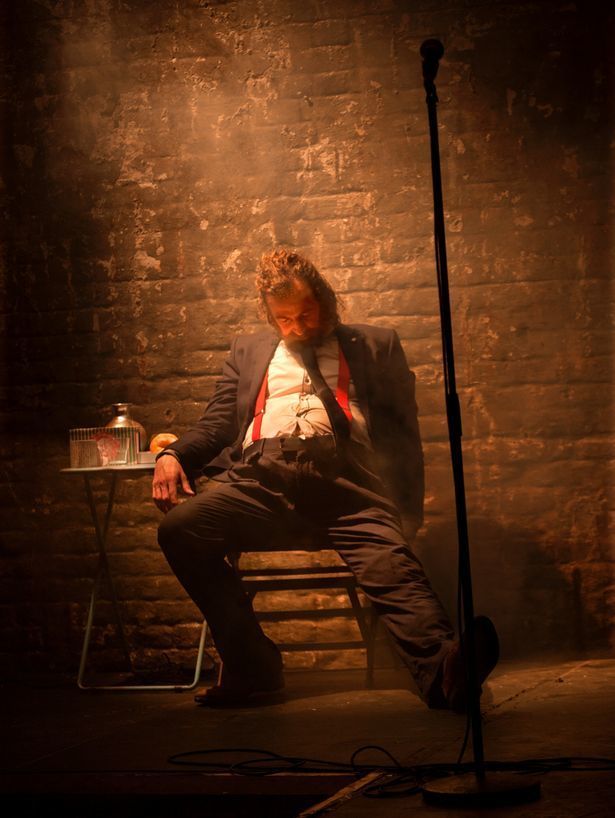Fat Man. A review. Sort of.
Please turn on your speakers
Orpheus didn’t need a microphone. Martin Bonger didn’t either. But he had one. For show.

Martin Bonger as Orpheus
Now a comedian, Orpheus handles the mic with contempt. The analogy is perfect. All stand ups want love. They never get it. You’re facing the wrong way, mate. Need to look behind you.
Only he did that. And now look where we are.
His Christ hair slickened into desperate, sweated strands. A fat suit, bursting at the buttons. Everything ripped, tattered and torn — Orpheus is a wreck of a man stitched together from grief and longing, forced to make one final performance of coping. Just one more painful retelling. Until next time. Which always comes anyway.
So why bother?
Because the gods are making him. Or so he thinks.
Orpheus is the myth all artists tell about themselves. The world’s greatest, he could even charm the rocks. His is an art that transcends time and place, much less people. Much good it did him.
Bonger’s myth is different. His Eurydice is from South London. And she can’t sing. But she stills that fidget in his soul. Makes him look at the world again. Not from the stage but from where you are. In the crowd. In love.
Here.
The drink poured. Again. Drunk. Again. The bdum tish! Over and over again. The silence. The eating — Fat Man kept stopping to restart. But that moment Eurydice slaps him. “I’m here. Don’t talk to me like that. You’re not on stage now. Come home.” That only happened once. And there are no second chances. Because he’s already looked behind him.
And the microphone is waiting.
Again.
I’ll play you a song, he says. Those conductor’s hands go up. He draws in the buzz of the lights, the breathing of the audience, chairs creaking. Silence. Can you hear it? We’ve moved past theatre. It’s meditation.
At other times he pulls in what you’re hearing now. Hands by Four Tet. It’s sort of an echo of coherence, no? All the parts are there - were there - but they’ve been exploded and reassembled in a new way, skipping about on the memory of itself, never going anywhere but back to where it started.
Orpheus wallows in his grief like saturated fat. His art has turned to bitterness and all his love is now a torment. When he goes down to hell in a boat, he won’t even kill himself to get there, which for Ovid made him a bit of a pussy — you call that love? you won’t even die for it. But it’s a smart move. You can have your perfection forever. Or your true love now.
Alone, Orpheus has nowhere for his infatuation with infinity to go but round and around the confines of his own artery-clogging grief.
Fat Man is a beautiful piece of theatre. I’m told it might tour again next year. You should go see it. Orpheus is a myth. Bonger is the real thing.